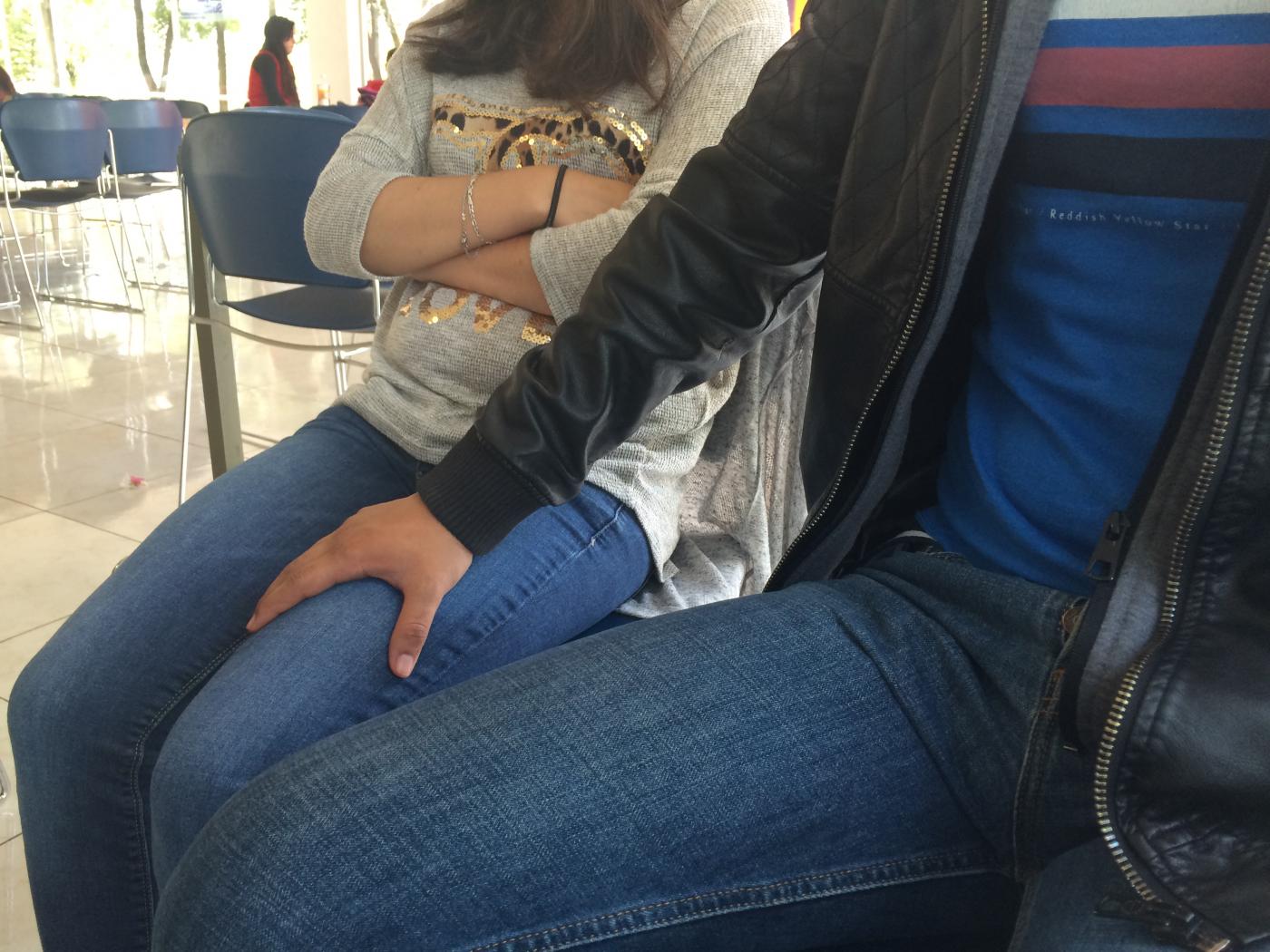Tears during debate on undesirable conduct at universities

A professor shouts in a postdoc’s face during an appraisal interview. Is that acceptable behaviour? A slide in a PowerPoint presentation shows a woman on a beach clad in nothing but a G-string. Is that appropriate at a scientific conference?
Just two of the examples of undesirable conduct that emerged during Tuesday evening’s VSNU café debate on social safety at our universities. The event at Café Dudok in The Hague was well attended.
‘All the warning signs are red.’ ‘It’s five minutes to twelve.’ Such comments from the audience left no doubt about the urgency of the matters under discussion. But judging from comments by moderator and VSNU President Pieter Duisenberg, these continue to be highly sensitive issues. ‘At VSNU, we were almost hesitant to discuss this topic so publicly.’ After all, it involves addressing your own weaknesses.
Vulnerable
The National Network of Female Professors (LNVH) and trade unions FNV and VAWO sounded the alarm in May. A study revealed that almost half of university staff do not feel safe in their own department. They encounter all kinds of undesirable behaviour, from sexual harassment and physical and verbal threats to obstruction of their research.
Several of those present at the debate attributed this to the hierarchical culture that is so prevalent at universities. ‘It cultivates dependence and the fear of making mistakes,’ said LNVH chairperson Hanneke Takkenberg. Some professors feel entitled to abuse that power. PhD students are especially vulnerable to the forces at work; all the more reason to pay closer attention to these members of staff, argued Carel Stolker, Rector Magnificus of Leiden University.
Staff also often feel discouraged, because complaints procedures are not always in place or adequately implemented. The competitive and individualistic culture at universities and the silence of victims – whether imposed or not – also ensure that misconduct is seldom tackled.
Moral compass
Opening the subject up to discussion is an important first step, the speakers agreed. The current lack of dialogue is not always the result of unwillingness. People in positions of authority are sometimes oblivious to how their behaviour affects others, and must first be made aware of the impact of their words and conduct. ‘In some cases they have lost their moral compass,’ said Reneé-Andrée Koornstra, HRM Director at Vrije Universiteit Amsterdam.
But another vital aspect is how people respond to undesirable behaviour, Carel Stolker observed. ‘We have to make sure people find a way to voice their discomfort with certain behaviour without immediately destroying the working relationship.’ Training for both people in positions of authority and more vulnerable employees can make this possible.
Healthy support structures also need to be established, said Hanneke Takkenberg of the LNVH. This should take the form of confidential counsellors and independent ombudsmen to whom anyone with a complaint can turn. And perhaps most importantly – the academic culture needs to change. ‘We have to move away from the notion of individual excellence and more towards the idea of a collective, of an academic culture underpinned by teamwork.’
Hot air
Someone in the audience asked whether universities cannot find a way to share their best solutions with each other, and stop everyone having to reinvent the wheel. But for another audience member, patience was wearing thin. ‘This talk about causes and solutions is all well and good, but when will action finally be taken? This is all just hot air. Nothing but blah blah blah, and meanwhile hardly anything is getting done.’
The woman spoke into the cube with a built-in microphone, which moderator Pieter Duisenberg had just tossed to her. Even before she started to share her thoughts, the tears were running down her cheeks. ‘Two years ago, three Leiden professors were fired (in Dutch, ed.) for exactly the reasons we are talking about. One of them was taken on (in Dutch, ed.) by Vrije Universiteit Amsterdam last year. It’s a slap in the face for the people who went through that experience.’
The woman was referring to Leiden University’s Institute of Education and Child Studies, where a culture of fear and intimidation had prevailed for years. A highly critical report accused three professors there of imposing a reign of terror. ‘I don’t understand how VU Amsterdam can say with a straight face that it still considers this to be an important issue.’
Second chance
HRM Director Renée-Andrée Koornstra of VU Amsterdam immediately got to her feet to respond. ‘People who know me know that I’m not one for idle chat. At VU Amsterdam, we have decided to give this person a second chance. In doing so, we made it clear that we will be watching very carefully to make sure that what happened in Leiden does not happen again. I do not tolerate intimidating behaviour.’
Pieter Duisenberg found it difficult to continue the debate after such a sensitive issue was raised. ‘I almost feel guilty that we have so little time to talk about this subject, but I am glad we have at least had an open exchange of views.’ In his opinion, the debate provided a point of departure. ‘Now the time has come to do really something about this.’